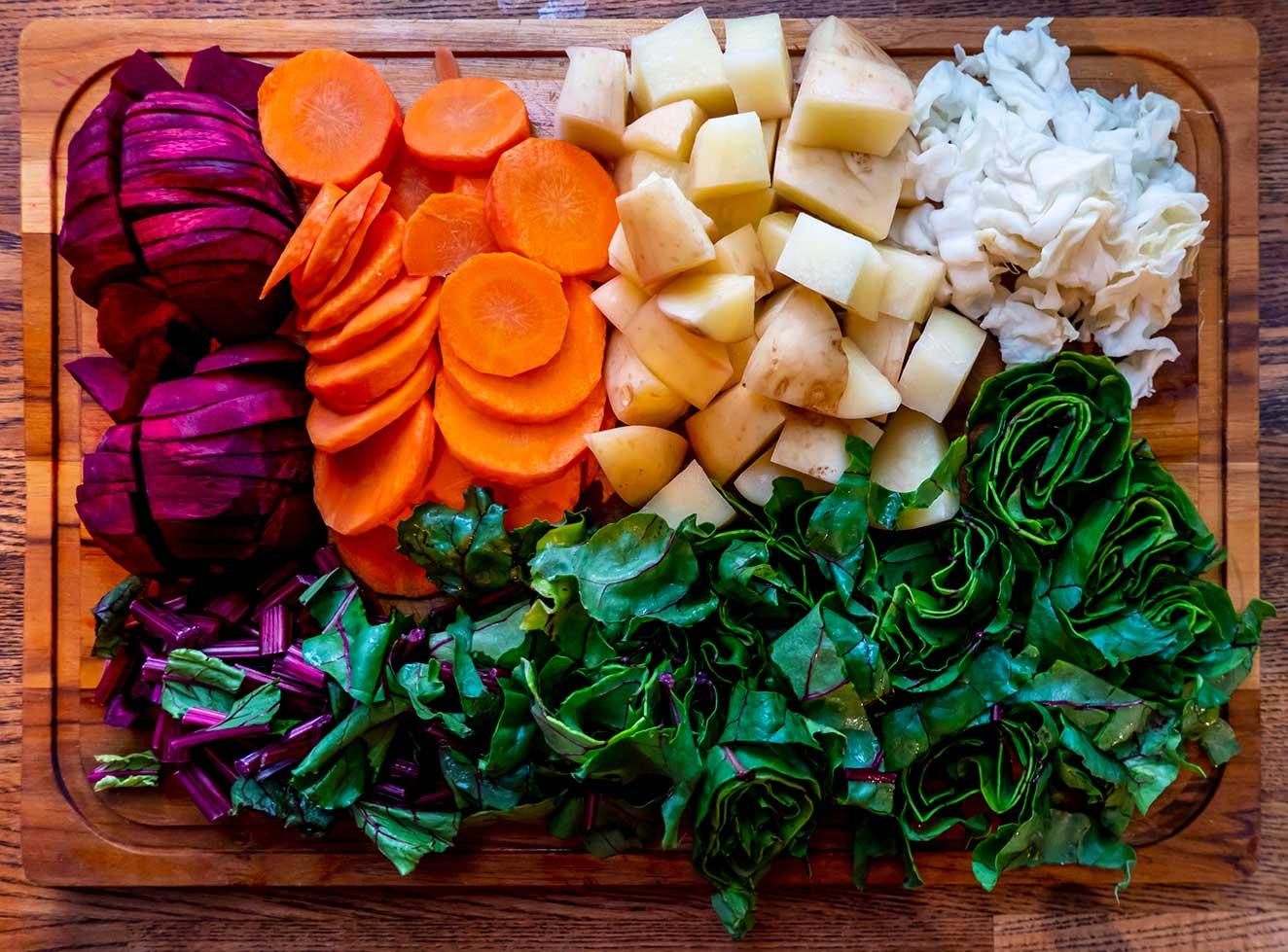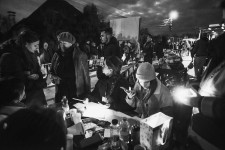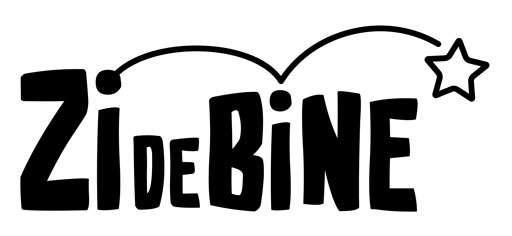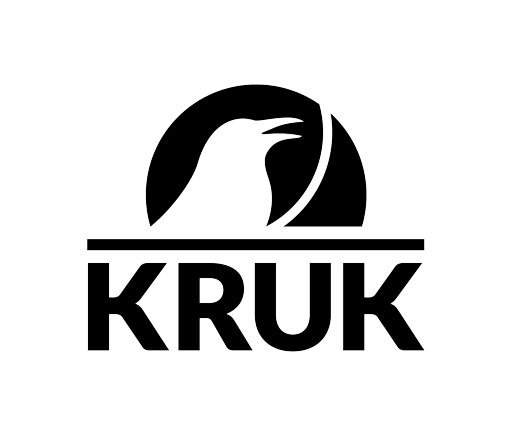Through the ashes of an empire
"Putin's chef" Yevgeny Prigozhin is in trouble. His business empire is facing severe sanctions from Kremlin. Media operations of the Patriot Group, controlled by Prigozhin, were shut down and authorities seized computers and documents in a raid on the group's headquarters. This is believed to be just the beginning of the dismantling of Prigozhin's empire, following accusations of treason by Vladimir Putin. Kremlin appears to be taking control of Prigozhin's troll farms, and his online organisation, the Internet Research Agency (IRA), has come under fire from critics and attacks even from its own employees. However, Prigojin's lucrative mining operations in the Central African Republic could be allowed to continue by Kremlin. Meantime, his affairs supplying food to military towns and bases continue. About all this mayhem in an article published by The Guardian.
Eyes and ears of the Tsar
According to exiled Russian oligarch Mikhail Khodorkovsky, less than a third of Russia's Federal Security Service (FSB) would be ready to back President Vladimir Putin in the event of a Prigozhin-like uprising. Hodorkovsky, who is in contact with FSB members unhappy with Putin's regime, says the recent rebellion exposed tensions within the Kremlin's top echelons. Under these circumstances, Putin finds himself in a difficult position, avoiding to retaliate against Prigozhin's uprising because he could face a possible mutiny within his own ranks. Ideas Prigozhin voiced during his revolt "cannot be erased" and are now "in the heads of the people," the former tycoon argues in an analysis published by Newsweek.
DJ Borș
Facing the Russian invasion of Ukraine, the techno community in Moldova finds refuge and unity in rave parties. The Pro Sănătate bar in Chishineu became an important stage for the underground scene, providing an alternative space for techno music in a country dominated by pop and karaoke bars. Despite tensions and threats caused by the Russian invasion, techno parties became even more popular, offering an escape and a way to cope with everyday anxieties, with members of the PODVAL collective organising highly vibrant events. Among other things, they also started holding free mixing workshops for Ukrainian women and girls led by local DJs such as Tulip Tea and DJ Borș. The techno community in Chishineu showed its solidarity with Ukraine since the beginning of the invasion. PODVAL members helped as volunteers, collecting food and everyday goods to support the refugees. Although there are fears and concerns about the war, they find in music a way to recover and block out negativity. A story published by meduza.io.
Threat unclear
Russia's statements about Ukraine's Zaporije nuclear power plant are very disturbing. There are concerns that it could become a Russian target, and warnings by Ukrainian officials and information about possible threats amplified the anxiety. Recent history, including the Kakhovka dam explosion, treated with indifference by the international community, only reinforced suspicions that Russia may use the plant as an instrument of information warfare or a source of disaster. Despite recent reassurances from the International Atomic Energy Agency, a bright aura of uncertainty and tension persists, reports news.sky.com.
Delicate tanks
A Ukrainian commander warns that French AMX-10 RC tanks are not suitable for counter-offensive in the war with Russia. The officer pointed out that their light armour makes these tanks vulnerable to heavy artillery and anti-tank weapons. There are also problems with their gearboxes, and there have been cases where explosions in close proximity damaged the vehicles. The AMX-10 RC model was delivered by France in support of Ukraine, but it seems that these tanks are not the best choice for fighting against heavier armoured combat tanks. Instead, American and British light transport vehicles, such as the Oshkosh and Husky, are considered more suitable and effective in the current combat conditions. This underlines Ukraine's continuing need for equipment and training assistance from Western allies. A euronews.com analysis.
Money have no smell
According to a study published by the Kyiv School of Economics (KSE) and B4Ukraine, and quoted by Deutsche Welle, only 17% of Western companies with operations in Russia before the invasion of Ukraine left the country. As for those that stayed, they practically help finance the war in Ukraine by paying taxes to Moscow. In 2022, these companies generated $177.2 billion in revenue in Russia and paid about $3.5 billion in corporate taxes. American and German companies were the highest contributors. However, economic ties between Germany and Russia changed dramatically, with significant drops in exports and imports. The fast-moving consumer goods and tobacco manufacturers are among the companies that continue to operate in Russia and pay taxes.
Postponed
Titled "How to ensure a strong and independent Ukraine", Ivo Daalder, former US Ambassador to NATO, published an article on politico.com, arguing that Ukraine's joining the North Atlantic Alliance is a complex and difficult subject, and a consensus among the allies on when and how it will materialize has yet to be found. There is division among allies over how and when Ukraine should join NATO, says the US diplomat. Some countries support Ukraine's early adherence, while others, such as Germany, are more reserved. At present, Ukraine's NATO membership is linked to the end of the war with Russia, and although there is a possibility of extending tangible security guarantees, a ceasefire or a durable ceasefire is required. There are precedents for security guarantees in such situations, but the conflict between Ukraine and Russia is different because it is still ongoing.
Who buys Russian fuel
Despite Russia's declining revenues from fossil fuel exports, many countries continue to import millions of dollars worth of crude oil and natural gas from Russia every day. China remains by far the largest importer, followed by European Union countries and India. While crude oil accounts for the bulk of Chinese imports, Russia's average daily revenue from fuel exports to China is also in decline. European Union imports of crude oil and natural gas continued, while India recorded a significant increase in imports. On the other hand, Russia's Urals crude oil price was lower than the Brent price and OPEC+ production cuts attempted to balance prices, but surging US production offset these efforts. Visit visualcapitalist.com for a detailed analysis on the subject, including an infographic listing Russia's top 20 fossil fuel importers.
20 days in Mariupol
Check out the trailer for 20 Days in Mariupol, Associated Press and Frontline PBS’s stunning documentary about Russia's brutal siege. The film won several awards, including the Audience Award at the Sundance Film Festival, and goes on to screen at a number of major film festivals. The documentary will be released, for now in a limited run, in cinemas in New York, Los Angeles, San Francisco and a few more.
Exclusive video footage inside an Ukrainian battlefield hospital
Ukrainian doctors swapped their white coats for military uniforms to treat wounded soldiers. In this exclusive production, a New York Times team spent a week inside a military field hospital to capture the relentless toll of war in Ukraine.

















